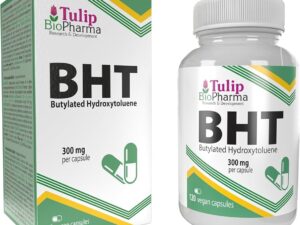Description
Title: Xanthan Gum: A Versatile and Powerful Thickening Agent
Introduction
Xanthan gum is a popular food additive and ingredient in the food industry, known for its remarkable ability to thicken and stabilize a wide range of products. Derived from the bacterium Xanthomonas campestris, xanthan gum is a polysaccharide that has found its way into various applications beyond food, including pharmaceuticals, cosmetics, and industrial uses. This article explores the properties, production, applications, and safety of xanthan gum.
Properties and Production
Xanthan gum is a high-molecular-weight polysaccharide, consisting of a pentasaccharide backbone with trisaccharide side chains. Its unique structure allows it to form strong hydrogen bonds with water molecules, creating a highly viscous solution even at low concentrations. This property makes xanthan gum an ideal thickening and stabilizing agent.
The production of xanthan gum involves a fermentation process using the Xanthomonas campestris bacterium. The bacterium is cultured in a sugar-rich medium, typically containing glucose, sucrose, or corn syrup. After the fermentation period, the xanthan gum is precipitated from the solution using alcohol, washed, dried, and milled into a fine powder.
Applications
Food Industry
Xanthan gum’s primary use is as a thickening and stabilizing agent in the food industry. Its unique properties make it suitable for various applications, such as:
- Sauces and gravies: Xanthan gum prevents separation and provides a smooth, creamy texture.
- Beverages: It helps suspend particles and maintains a uniform consistency in products like salad dressings and instant drink mixes.
- Baked goods: Xanthan gum improves the texture and shelf life of gluten-free baked goods by providing structure and elasticity.
- Ice cream: It reduces ice crystal formation and improves the smoothness and texture of the final product.
Industrial Applications
Beyond food, xanthan gum has various industrial applications, including:
- Oil drilling: Xanthan gum is used to thicken drilling fluids, improving drilling efficiency and reducing borehole erosion.
- Cosmetics: It serves as a thickening and stabilizing agent in personal care products like lotions, creams, and toothpaste.
- Pharmaceuticals: Xanthan gum is used in the production of tablets, capsules, and suspensions to improve flow properties and stability.
- Textile industry: It is used as a binder and sizing agent in the textile industry.
Safety
Xanthan gum is generally recognized as safe (GRAS) by the U.S. Food and Drug Administration (FDA) and the European Food Safety Authority (EFSA). It has a low toxicity profile and is well tolerated in small quantities. However, some individuals may experience gastrointestinal side effects, such as bloating and gas, when consuming large amounts of xanthan gum.
Conclusion
Xanthan gum is a versatile and powerful thickening and stabilizing agent, with applications spanning various industries, from food to pharmaceuticals and cosmetics. Its unique properties, such as high viscosity at low concentrations, make it an invaluable ingredient in numerous products. Xanthan gum’s safety profile and low toxicity further contribute to its widespread use and popularity in the food industry and beyond.













Reviews
There are no reviews yet.